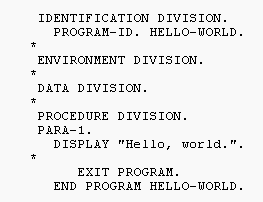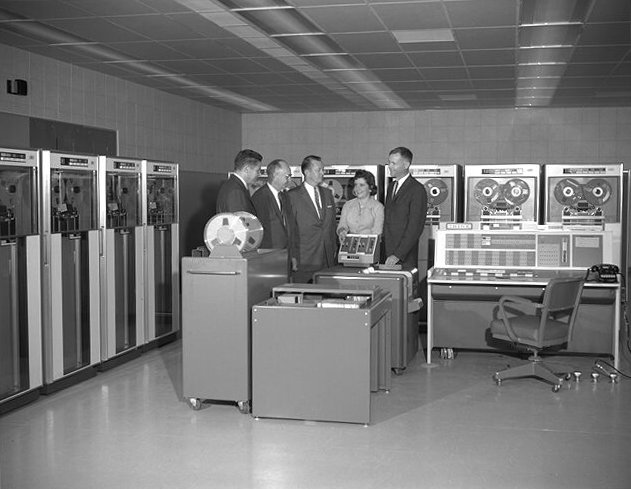My first paying job out of college in the early 1990’s was working for a company that made COBOL compilers and runtimes. Even then the language was something of a relic and there were frequent predictions about its eventual demise.
Thirty years have gone by and yet COBOL refuses to die. A recent CNN article notes that several states are actively seeking COBOL programmers to build and maintain antiquated systems used to handle unemployment claims. One alarmist headline elsewhere even reads “An old programming language is threatening global stability“.
Part of the reason why it is still around is that there was so much code written with it. I recall some stats in the 1990’s that indicated that over half of all written source code lines in the world was in COBOL. That was an established base that was not going to go away overnight.

So much code was written for it because it was fairly advanced when first introduced. Fortran and Assembly were probably the only other viable options at the time in the 1950’s and 1960’s and COBOL was ideal for business apps compared to them. There was little other choice.
A second reason has to do with who continues to use it. It is state and federal governments looking for help to maintain ancient systems. There’s a reluctance to take on a risky task of moving to a new system. And even if there was the stomach for it, it’s likely there is no money available to take on the task.

The company I worked for, Ryan McFarland, was purchased years ago by a rival. RM/COBOL still shows up as a product online on its website.
Am I feeling an urge to return to my work “roots”? In a word, no. I wrote very little COBOL code while working on the product. Mostly I wrote C and Assembly code and the COBOL came into play for generating test cases.
When will the last line of COBOL code be executed on a production system? At this rate I think it will be around even after I’m long gone.
